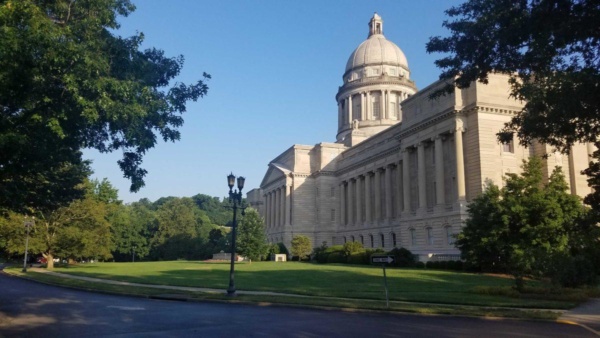Kentucky’s regional universities are worried about a spike in the amount they have to put into the state’s pension system and, after more than a decade of cuts, are asking for the legislature to give them more funding.

Regional universities like Eastern Kentucky University, Murray State University and Western Kentucky University currently have to contribute an amount equal to 49 percent of every employees’ salary back to the retirement system.
That amount is about to increase to 93 percent. The universities say that would force them to cut services and raise tuition.
Murray State University President Bob Jackson told a legislative committee on Thursday the increase would force universities to make tough financial decisions.
“As pension rates increase, it’s an appropriation cut, in essence. Because we simply get it and turn around and give it back to the pension system,” Jackson told the House Budget Subcommittee on Postsecondary Education.
The jump in the pension contribution rate is due to a recalculation of several factors affecting Kentucky’s pension system in recent years.
The board that manages the pensions of most public workers adopted new assumptions of how well investments would perform, how much salaries would increase and how long workers would live—determining that state agencies need to contribute more into the system to keep it afloat.
In response, the legislature has granted reprieves to regional universities and “quasi” state agencies like health departments, rape crisis centers and domestic violence shelters, freezing their contribution rates at a lower level.
But unless the legislature steps in again, the latest reprieve will expire on July 1, forcing universities and those agencies to either cut services or exit the system entirely under a bill pushed by former Gov. Matt Bevin last year.
David McFaddin, interim president of Eastern Kentucky University, said that his school needs more investment to survive.
“I think the single biggest threat to the commonwealth and to the institutions is this unfunded liability in the pension system,” McFaddin said.
In his budget proposal, Democratic Gov. Andy Beshear proposed a 1 percent increase to university budgets and pausing the performance funding model that requires universities to compete for resources.
Beshear also proposed capping the regional university and “quasi” agency contribution rates at 67 percent—a move that some Republicans say would underfund the pension system by not requiring the full 93 percent payment (Beshear has argued the gap would be partly covered by his proposal to give state workers a raise, resulting in larger employee contributions).
McFaddin said EKU would appreciate the reprieve and financial support, but the university would still face a $3 million cut.
“We would just encourage continued thought about how we can try to move forward in a responsible way,” McFaddin said.
During a special legislative session last summer, the legislature passed a bill that would address the spike in pension contribution rates, granting a gradual increase as long as regional universities and “quasi” agencies agreed to exit the pension system.
It would have also incentivized the agencies to move employees into 401k-type retirement plans, preventing them from earning future pension benefits.
So far no agencies or universities have exited the system.






